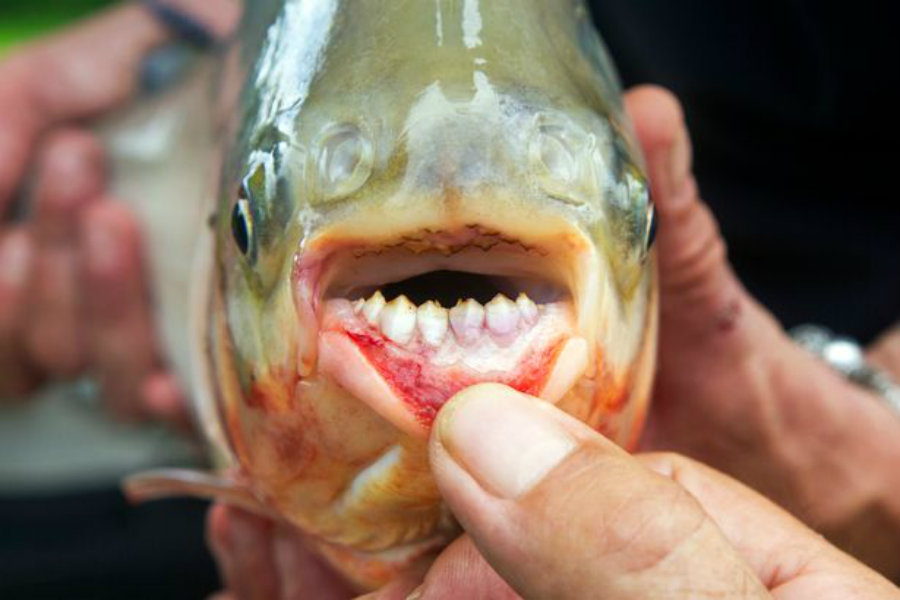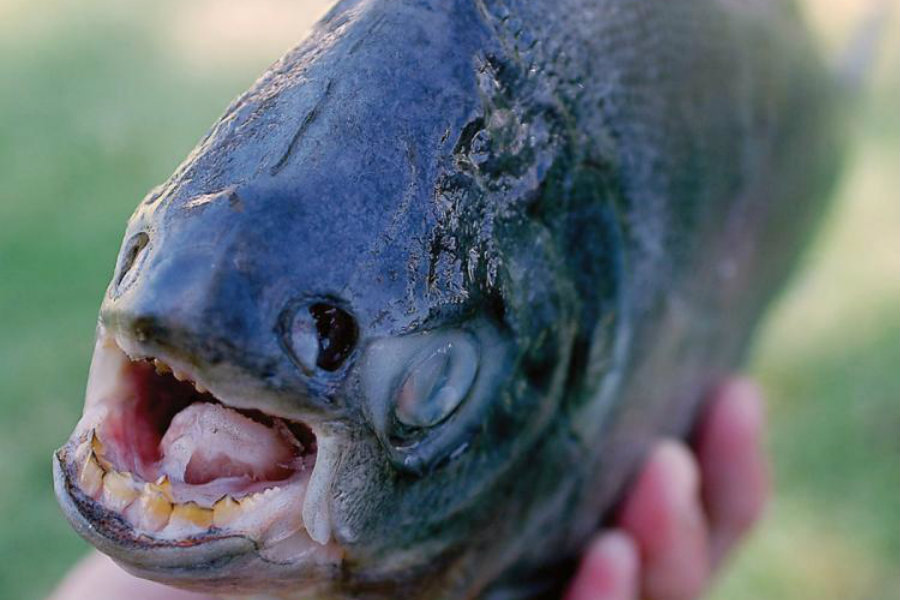The State’s Department of Natural Resources (DNR) has reported a fish with human-like teeth on the eastern side of Michigan. The fish belongs to a species called “Pacu.” which is a relative of the Pirahnas.
Three pacus were spotted on Michigan’s Lake, according to information published by state’s officials. The fishes were seen on a Port Huron lake and two others on Lake St. Clair. The wild fishes come from South America and often arrive at the United States as pets, yet the species tends to grow fast reaching almost three feet, which causes pet owners to dump them in nearby waters.

The DNR has warned both pet owners and residents about the Pacu findings since the fish tends to bite back and sharp. Also, adding a strange species to Michigan’s lakes could endanger the natural environment and ecosystem.
Nick Popoff, who is the DNR’S manager for Aquatic Species, informs that dumping the fish in strange waters is “almost never humane.” According to Popoff, pets don’t last long in natural environments because they are not capable of defending against predators.
There hasn’t been a massive investigation of Pacu’s in non-natural environments and according to the DNR the fish is not considered an invasive species yet, but this remains uncertain. Michigan’s DNR suggests pet owners take their Pacu’s to the zoo or a nearby aquarium if they no longer can take care of the fish.
Getting to know the species
Pacu has large and vigorous teeth that resemble a human bite. These species usually feed on plants, fruits, and nuts, but they might catch a small fish and eat them in occasions. The name ‘Pacu’ is used as a code name for several omnivorous species that breeds in South America, most commonly in fresh waters.
Although they are distant relatives of the deadly piranhas, their teeth and size set them apart from each other. The species tends to outgrow their dangerous cousins by growing almost to four feet and with a typical weight of 55 lb.

In Europe Pacu fishes are known for attacking the male population, since they often mistake fruits and nuts with male testicles, an error that grants them the nickname of ‘The Nut Cracker’. Incidents have occurred from France to Papua New Guinea, and South America was a fisherman ended up bleeding to death after a Pacu fish bit him.
In the United States, Pacu fishes have been reported in almost 27 states, yet there have been no reports of harming the environment. The species tends to die since they don’t adapt to the environment and the weather.
Source: USA Today
